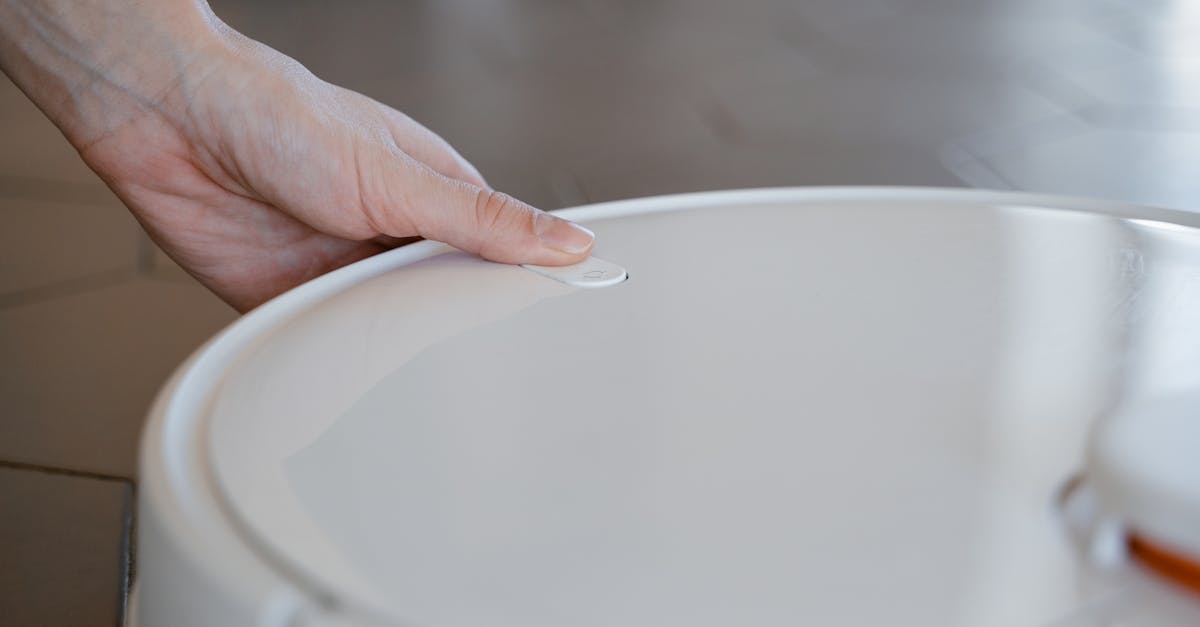As the year comes to an end, temperatures change from sweltering to frigid. With all these changes comes the need to shift your approach to pool maintenance to adjust for colder temperatures and less pool usage.
Keep reading to learn how to winterize a pool and why it’s so important!
Quick Links:
- What Does Pool Maintenance Entail?
- Why Is “Winterizing” A Pool Important?
- When to Start Preparing Pools for Winter
- How to Winterize A Pool
What Does Pool Maintenance Entail?
Pool maintenance covers any concept related to taking care of a pool, ranging from the chemistry involved with balancing the pH to removing debris. Each aspect is important and plays a crucial role in ensuring a pool lasts for a long time — not to mention being safe to use.
Owning and caring for a pool commonly includes the following activities and supplies:
- Using a leaf skimmer to capture floating debris
- Brushing the sides, walls, and floor of the pool to remove tough dirt
- Checking, cleaning, and replacing the filter
- Maintaining a balanced pool through the use of various pool chemicals, such as pool sanitizer, chlorine, algaecide, and more
- Vacuuming the pool to pick up any debris or particles on the floor
Of course, there are more details to each of these points, but these are some of the most common elements of pool maintenance.
So how does pool care change when winter comes?

Why Is “Winterizing” a Pool Important?
Just as you need to ensure a pool is ready for the summer months of fun gatherings and frequent use, you also need to prep your pool for going into hibernation during the winter.
Whether the area you live in anticipates freezing winters or it’s just too chilly to take a swim, a pool requires a few special steps for these months.
This includes lowering the water level, adding algaecide, deep cleaning, covering, and much more. In addition to this work, you may also need to get specialized equipment that works for winterizing a pool.
Still, when should you start preparing a pool for winter?
When to Start Preparing Pools for Winter
As temperatures start to get lower and stay consistently too cold to enjoy your pool—usually around 65 degrees—then it’s probably time to consider winterizing a pool. Depending on where you live, this could happen as early as September or as late as November.
However, it’s important to wait for the right temperatures to start the winterizing process. This is because algae thrive in warmer weather, so winterizing too soon could prompt a small algal bloom in your pool water—even with the proper prevention measures.
Monitor temperature patterns in your area to best plan for winterizing, then expect to take a week or so to complete the winterization process.
How to Winterize a Pool
Ready to prepare a pool for winter? Follow these steps to get started. Keep in mind that you may have to modify or add to this list, depending on the specific pool situation:
Deep Clean the Pool
The first step in winterization is to deep clean the pool. This means pulling out all the pool floats on top and sunken toys on the bottom, plus any leaves, branches, or other debris that might have accumulated over time.
It also includes skimming the pool’s surface and using a vacuum to clear out the pool from top to bottom. You may also have to manually scrub the sides and floor too, just to make sure everything is as clean as possible.
Balance Water Chemistry
This is one of the most critical steps to take when preparing a pool for winter: the pool’s water chemistry can determine how well it weathers the colder months.
Generally, follow these measurements to get a start on properly balancing the chemicals in the pool water:
- Maintain alkalinity between 80 and 150 parts per million (ppm)
- Steady pH levels between 7.2 and 7.6
- Balance chlorine levels between 1 and 3 ppm
- Ensure calcium hardness is between 175 and 225 ppm
If the numbers are on the higher side of these ranges at first, that’s okay. They’ll gradually decrease over time.
Protect the Pool’s Equipment
To ensure the longevity of the pool’s equipment, drain it and store it away for the winter months. Since water expands when it freezes, any water sitting in the equipment outside will expand and potentially damage the equipment itself.
This includes items like filters, which can be removed and stored. Generally, a garage or other storage area will be sufficient to protect the equipment, so long as it’s not exposed to freezing—or below-freezing—temperatures.
Check on the Pool
As with any system that entails chemicals or equipment, it’s smart for the homeowner to monitor the condition of the pool over the course of the winter.
For example, if the pool is covered then gets copious amounts of snowfall, it’s a good idea to double-check how well the pool cover is handling it and the resulting snowmelt.
If the pool is somewhere with warmer weather, it’s a good practice to clear out autumn leaves that might find their way into the pool every once in a while.
Checking the pool’s pipes for leaks or inspecting its equipment every so often during this off-season is also good for maintaining a pool.
Taking a few steps now can prevent plenty of headaches later when the summer months roll around and it’s a mess that needs expensive repairs.
Schedule Winter Services
The same pool company that cleans pools during the busy season of summer also recognizes how important it is to maintain pools in the winter; when in doubt, talk to a local company about winter maintenance services to keep a pool in shape.

Help Your Field Service Company Win This Winter with ProValet!
When it comes to managing pools and preparing them for the winter season, there’s a lot of moving parts, chemicals, and checkboxes to mark off. How can your technicians keep track of handling various solutions and effectively communicate with the client about their process? ProValet can help you manage like a pro and win the winter season!
With ProValet’s easy-to-use management platform, all of your routine manual tasks between you, your technician, and your homeowners are automated for one seamless solution for optimal communication, transparency, and customer service.
With our management app—featuring GPS tracking capabilities—you can track your team’s progress, respond to and invoice customers, and schedule out services while receiving updates in real-time! It’s time to ditch pen and paper in order to embrace modern management. Contact us today to learn more!







